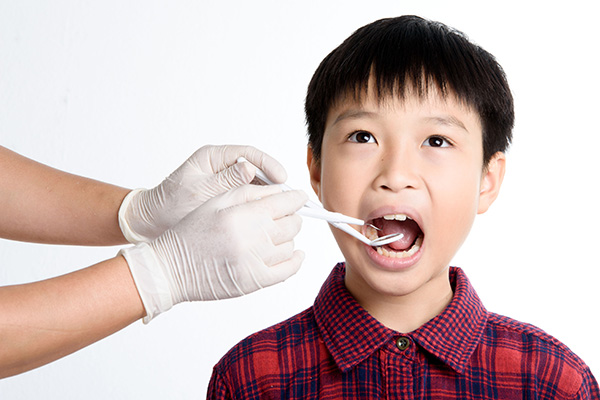 A pediatric dentist knows how common cavities are in children. Spotting and treating tooth decay in children can stop its progress early. This can give your child a healthy start in life. Protecting your child’s teeth from deterioration is possible with dental sealants. If you want to know when a pediatric dentist may suggest dental sealants, here are the details.
A pediatric dentist knows how common cavities are in children. Spotting and treating tooth decay in children can stop its progress early. This can give your child a healthy start in life. Protecting your child’s teeth from deterioration is possible with dental sealants. If you want to know when a pediatric dentist may suggest dental sealants, here are the details.
When a pediatric dentist would suggest dental sealants
Cavities can develop in the developing teeth of children. Bacteria are always in the mouth. These microorganisms thrive on sugary drinks and foods. This is when acids form and start destroying a child’s teeth. The enamel layer is not that strong in children yet. This allows the easy formation of cavities.
A pediatric dentist would suggest preventing cavities at an early age. This is when a dental sealant recommendation enters the picture. The subject may arise during the first dental appointment. The pediatric dentist would emphasize the critical need to protect the child’s teeth from early decay.
The early application of dental sealants can help provide the child dental protection despite improper brushing techniques. Children are not that dedicated to oral care practices yet. They often brush for about a minute and then rinse. Sometimes, waking up late at night for a midnight snack makes children forget about brushing before sleeping. Dental sealants can reduce the effects of inadequate brushing and flossing.
The proper age for dental sealants
Asking a pediatric dentist about 12-year molars can help parents understand the importance of dental sealants. These 12-year molars stay in the back of the child’s mouth until or after 12 years of age. The rest of the child’s teeth will become permanent at about seven years old. These molars are the longest-lasting baby teeth. It is crucial to protect them when they erupt.
A child’s 12-year molars have more pronounced and deeper grooves than permanent molars. It is often difficult for children to keep these molars clean even if brushing happens two times a day. A pediatric dentist will recommend dental sealants to have about an 80% reduction in cavities. The sealants cover the deep grooves of the 12-year molars. The child does not need to worry about brushing that area hard anymore.
The pediatric dentist will recommend applying dental sealants on the first molars at around six years old. Giving the first round of sealants will protect the first molars while waiting for the second molars to erupt at around 12 years. By this time, the child can get another dental sealant treatment. Every application of dental sealants can last for about 10 years. The pediatric dentist can give the child a fresh application on both molars when the sealants start to deteriorate.
Applying dental sealants on baby teeth is an optimal way of preventing tooth decay. The attending pediatric dentist can check the sealants during each dental visit to see if they need repairs. This is a quick and easy way to ensure the child’s dental health. It can prevent the development of aggravating dental problems as the child grows up.
Your pediatric dentist will recommend dental sealants for prolonged protection against cavities
Children deserve proper dental care from the very start. Talking to your pediatric dentist about applying dental sealants on your child’s teeth must happen even before baby teeth erupt. These sealants will shield your child’s baby teeth from decay. Healthy baby teeth pave the way for healthy permanent teeth.
Request an appointment or call Nett Pediatric Dentistry & Orthodontics at 623-759-7658 for an appointment in our Phoenix office.
Recent Posts
In pediatric dentistry, dentists assess how certain food types affect oral health and make recommendations accordingly. Common childhood snacks can harm teeth by breaking down enamel and contributing to periodontal diseases, such as sugar-filled yogurt packs, cookies, and citrus fruits.This review takes a closer look at snacks parents can provide for their children that are…
Once teething starts, you should pay close attention to your child's teeth to avoid tooth decay, cavities, and other oral health problems. A dentist specializing in pediatric dentistry might advise against pacifiers and other items that might interfere with the healthy development of their oral tissues. Sucking on a pacifier is common among infants and…
Pediatric dentistry is a vital part of a child's healthcare team. They are responsible for the oral health of babies, children, and adolescents. A pediatric dentist has the education and experience to care for a child's unique dental needs. In addition, they can provide preventive care, diagnosis, and treatment of various dental problems.Parents need to…


